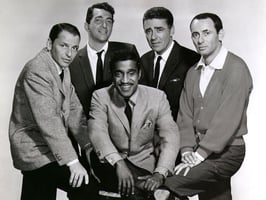Ella could saaaang. You know, just belt one out like she was making tea. Effortless power,...
You Don’t Own Me
It's not likely to be news that words have power. They have power to alter behavior, influence change, lead a revolution and cause the deepest kinds of pain possible. As professionals, we might forget that people still are impacted by words. Perhaps we've taken to bending the truth in our conversations to either soften the blow or paint a better picture of things so that employees don't lose heart. While there are a couple of studies that try to prove the value of lying, there are more that point to honest transparency as the beneficial route. Whatever the reasons might be, our words matter.
Have you seen the little girl telling her dad a lie about what happened to Barbie (and why?). You must! Amazing insight into our DNA. We're not taught how to lie; it's a natural phenomenon for us. We just do it in order to avoid trouble, deflect attention or save our skin. Truth is easily replaced by a lie. Consider the countless times people get pulled over. Think everyone tells the cop the truth? Or even playing the "I was speeding? I had no idea. Oh my gosh," when you know full well that you were flooring it. Some of us give Oscar-worthy performances!
Fear is a huge motivator of our words. What would it mean if an HR Manager said that he/she didn't know something that's HR related? It shouldn't be a shock, but fear might stand in the way of that HR Manager being honest. He/She might be afraid of looking weak or not-as-experienced as a supervisor would expect. And so, if we are backed into a corner with our fear, we might lie. We might say we know something. We might say we have done a certain task. We might offer perspective as if we've been there-done that. All of it is dishonest. And now those lies have to be built upon as time goes on. Those lies own you.
Organizational health functions best in honesty. When staff know that the words of the leaders are real, the response is genuine. In late 2008, when the economy in the US fell due to the housing crisis, company leaders sat with their employees to let them know what was going on. In some of those conversations, layoffs were presented as a viable option to save money. The response from many employees was to keep everyone and just reduce every employee's hours. They understood what was happening, why it was happening, and based upon the honest dialogue from leadership, volunteered a plan of action. While the stress of the economics was real and cannot be denied, there was health in the approach to all get into the same boat and hold on.
It is important to note that no one is alone in this. In some ways, we've helped create a culture of untruth. Our fantasies are affirmed more than our realities. We have allowed our leadership to be untrustworthy for a long while. Just looking at our political landscape reflects such a position. Our role as management, as leaders, is to break the cycle. I am not naive to think that this will mean open doors for everything with full disclosure. Quite frankly, there are details that are not for the world to know. This is not dishonest if it's shared just that way...."Here's what I can tell you and understand there are some parts that I cannot offer much detail due to (confidentiality, a matter of law, unsettled circumstances, etc.)"
We have one another to stand with in our doubt, in our lack of knowledge and in our fear. It's okay to not know something. That's the beauty of asking our community, of attending seminars and workshops, of developing friendships with managers from other companies. We can't know it all, and we have to be okay to say so. Honestly, I know for myself and some others who've shared with superiors where our difficulties were, we were not fired.
Perhaps, you find this whole topic puzzling or amateur. Fine, but the reality is that there is enough fear pushing a lack of truth in our workplaces. If it's not you, it may be someone working for you. Do our staff feel that they can say what they don't know without fear of reprisal? Are they apt to lie? How can we cultivate a different environment?
In HR, we see people lie often. It's sad, but true. We read resumes containing experiences that never occurred. We hear from employees in a disciplinary situation covering their butts. We hear executives tell us that everyone will keep their jobs as a result of a merger. It is all around us. We can push for a more honest culture by being an example first.




Blog comments